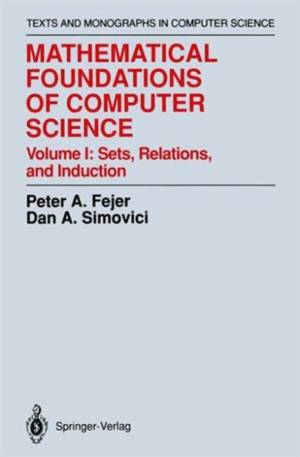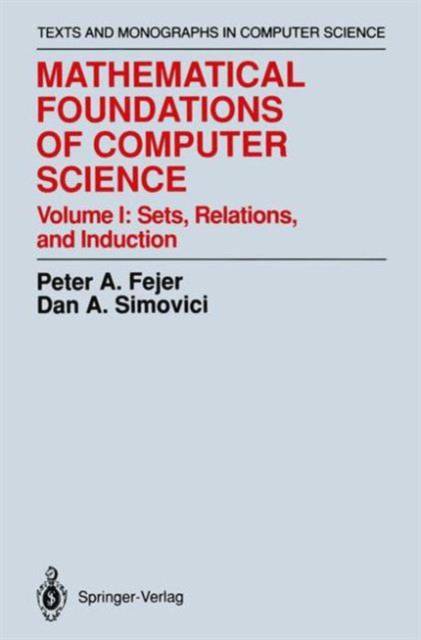
Bedankt voor het vertrouwen het afgelopen jaar! Om jou te bedanken bieden we GRATIS verzending (in België) aan op alles gedurende de hele maand januari.
- Afhalen na 1 uur in een winkel met voorraad
- Gratis thuislevering in België vanaf € 30
- Ruim aanbod met 7 miljoen producten
Bedankt voor het vertrouwen het afgelopen jaar! Om jou te bedanken bieden we GRATIS verzending (in België) aan op alles gedurende de hele maand januari.
- Afhalen na 1 uur in een winkel met voorraad
- Gratis thuislevering in België vanaf € 30
- Ruim aanbod met 7 miljoen producten
Zoeken
Mathematical Foundations of Computer Science
Sets, Relations, and Induction
Peter A Fejer, Dan A Simovici
€ 100,95
+ 201 punten
Omschrijving
Mathematical Foundations of Computer Science, Volume I is the first of two volumes presenting topics from mathematics (mostly discrete mathematics) which have proven relevant and useful to computer science. This volume treats basic topics, mostly of a set-theoretical nature (sets, functions and relations, partially ordered sets, induction, enumerability, and diagonalization) and illustrates the usefulness of mathematical ideas by presenting applications to computer science. Readers will find useful applications in algorithms, databases, semantics of programming languages, formal languages, theory of computation, and program verification. The material is treated in a straightforward, systematic, and rigorous manner. The volume is organized by mathematical area, making the material easily accessible to the upper-undergraduate students in mathematics as well as in computer science and each chapter contains a large number of exercises. The volume can be used as a textbook, but it will also be useful to researchers and professionals who want a thorough presentation of the mathematical tools they need in a single source. In addition, the book can be used effectively as supplementary reading material in computer science courses, particularly those courses which involve the semantics of programming languages, formal languages and automata, and logic programming.
Specificaties
Betrokkenen
- Auteur(s):
- Uitgeverij:
Inhoud
- Aantal bladzijden:
- 425
- Taal:
- Engels
- Reeks:
Eigenschappen
- Productcode (EAN):
- 9781461277927
- Verschijningsdatum:
- 27/12/2011
- Uitvoering:
- Paperback
- Formaat:
- Trade paperback (VS)
- Afmetingen:
- 156 mm x 234 mm
- Gewicht:
- 621 g

Alleen bij Standaard Boekhandel
+ 201 punten op je klantenkaart van Standaard Boekhandel
Beoordelingen
We publiceren alleen reviews die voldoen aan de voorwaarden voor reviews. Bekijk onze voorwaarden voor reviews.









